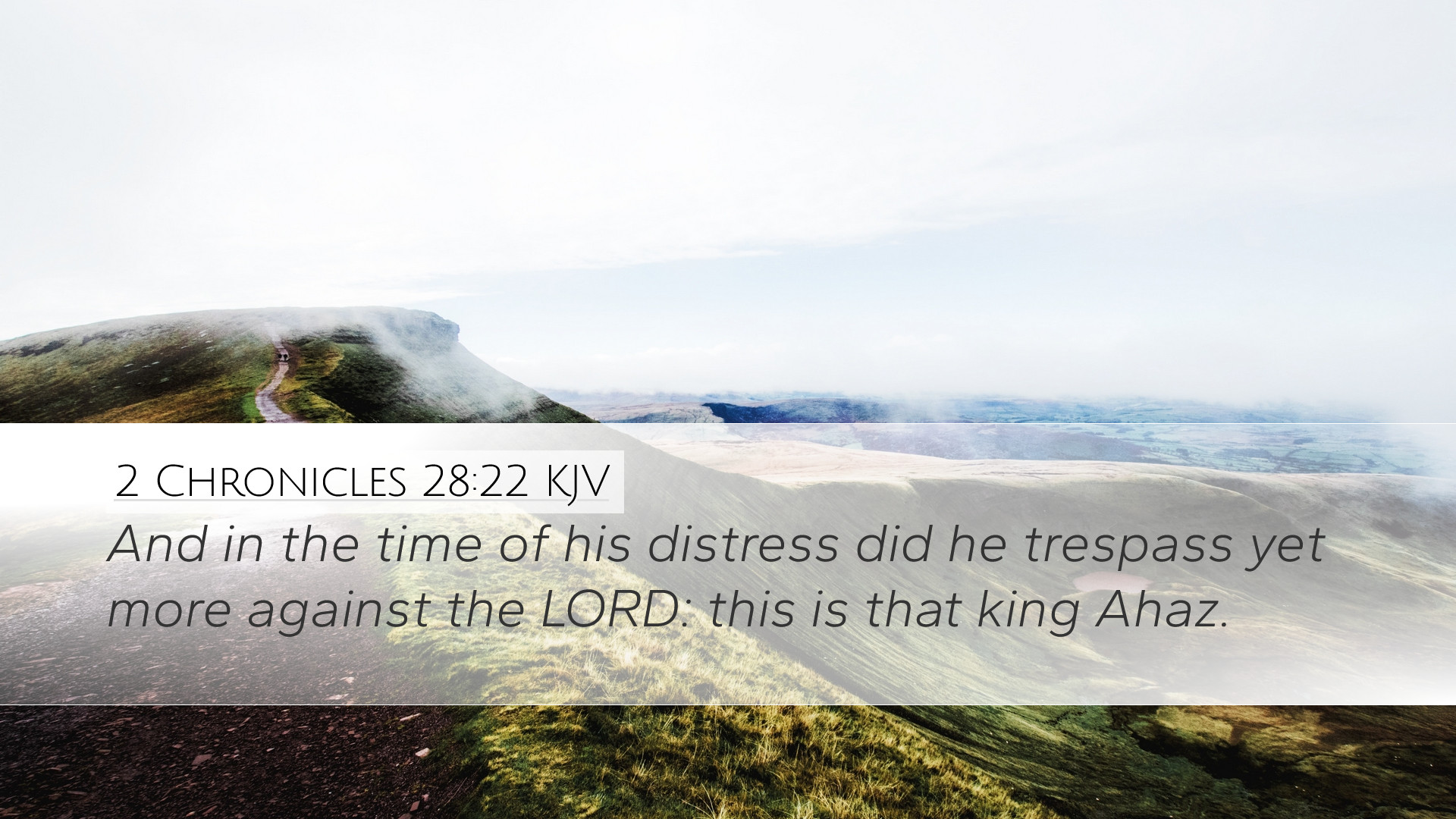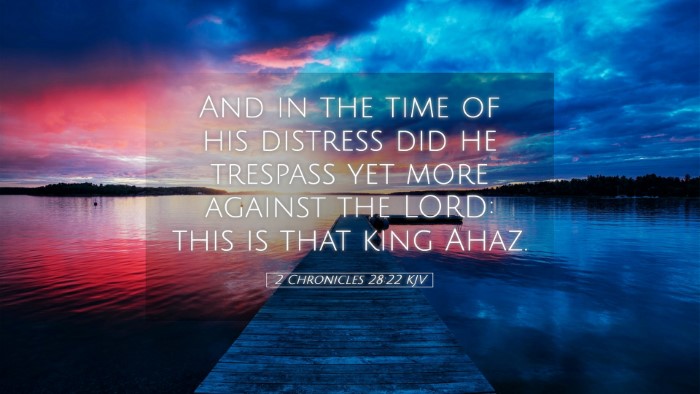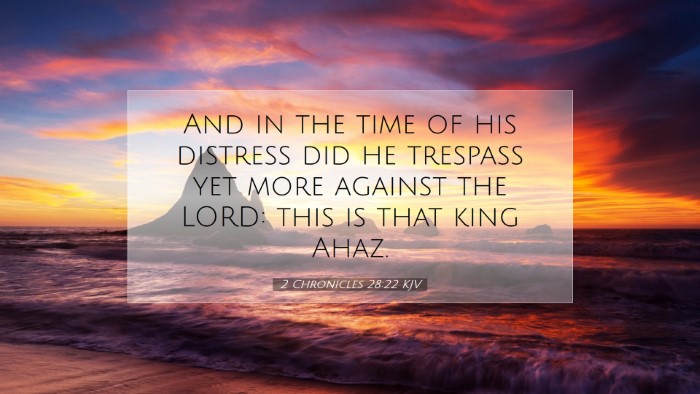Commentary on 2 Chronicles 28:22
Verse Reference: 2 Chronicles 28:22 - "And in the time of his distress did he trespass yet more against the LORD: this is that King Ahaz."
Historical Context
The backdrop to this verse is the troubled reign of Ahaz, the king of Judah, who ruled during a tumultuous period characterized by military conflicts and spiritual decay. His actions precipitated significant consequences both for himself and his kingdom.
The Nature of Ahaz's Distress
Ahaz's distress was manifold: he faced external threats from Israel and Syria, and his kingdom was weakened by internal corruption and idolatry. Public domain commentators highlight that distress often reveals the true character of individuals. In Ahaz's case, rather than turning to God for help, he chose to deepen his transgressions.
- Matthew Henry: He notes that in his time of trouble, Ahaz did not seek the Lord but instead became more entrenched in idolatry. This reflects the human tendency to turn away from divine reliance in times of crisis.
- Albert Barnes: Emphasizes the folly of Ahaz in rejecting God's guidance and protection, stating that one should remember that crisis moments should lead to repentance rather than rebellion.
- Adam Clarke: Focuses on the psychological aspect, suggesting that distress can lead individuals to despair, prompting them to make poor spiritual choices instead of seeking divine assistance.
Spiritual Implications
This verse is a profound reflection on human behavior, especially in relation to trials. The failure of Ahaz to seek God during his distress challenges theologians and believers alike to consider their responses when faced with adversity.
- Seeking the Lord: The scriptures universally encourage believers to turn to God in times of need. Ahaz’s omission serves as a cautionary tale.
- The Nature of Sin: Ahaz’s increasing sinfulness in times of distress illustrates how crises can evoke a range of responses, and the dangerous path of resisting God.
- God’s Sovereignty: Commentators suggest that despite Ahaz's choices, God’s sovereignty remained intact. His rebellion did not negate God’s power to fulfill His plans.
Applications for Today
This passage has significant implications for contemporary believers, particularly in pastoral ministry and individual faith journeys.
- Response to Crisis: Pastors and leaders can draw from this verse to guide their congregations to remain steadfast in faith during trying times. It challenges individuals to cultivate a reliance on God rather than succumb to despair.
- Teaching on Idolatry: The text serves as a reminder about modern forms of idolatry that can parallel Ahaz’s behavior, encouraging believers to examine what they prioritize over God when under pressure.
- Encouragement to Repentance: Emphasizing the need for repentance rather than rebellion is vital in teaching. Ahaz serves as an example of what to avoid.
Conclusion
2 Chronicles 28:22 stands as a testament to the dangers of ignoring divine guidance. By examining the life of King Ahaz through the insights of revered commentators, we discern valuable lessons about the nature of distress, the human condition, and God’s unwavering sovereignty. Let both leaders and laypeople be encouraged to seek the Lord in every circumstance, learning from the failures of those who have gone before us.


